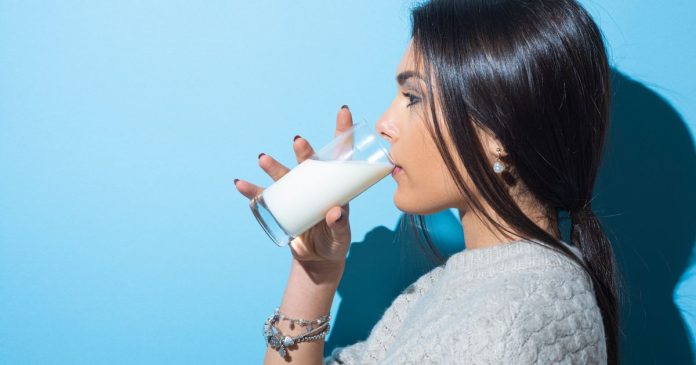A trendy beverage, touted on social media as a cure-all for various health issues, could actually heighten the risk of serious diseases.
While most milk bought from supermarkets is pasteurised, some people are opting to source raw milk locally. Raw milk is simply any milk that hasn’t undergone pasteurisation – a process where milk is heated to kill off harmful microorganisms.
Despite numerous claims that raw milk is healthier than its pasteurised counterpart, there’s scant scientific evidence or studies to back this up. In fact, consuming raw milk could increase your exposure to harmful organisms compared to drinking pasteurised milk.
Raw milk has been credited with a host of health benefits. It’s often claimed that it offers more protein, amino acids, and vitamins because many components are removed during pasteurisation.
Advocates of raw milk also argue that it’s better suited to individuals with asthma and lactose intolerance. This belief stems from the fact that pasteurisation eliminates lactase-producing bacteria like lactobacillus.
Despite popular belief, research has found scant evidence to suggest that the digestion of raw milk and pasteurised milk differs significantly. In fact, it was concluded that raw milk didn’t alleviate any symptoms of lactose absorption, implying that it wouldn’t make a difference whether a lactose intolerant individual consumed raw or pasteurised milk.
Another common claim is that raw milk, being rich in antimicrobial substances, offers more health benefits. While it’s true that some microbes see reduced activity in pasteurised milk, a significant portion still survive the heating process, which likely doesn’t outweigh the serious risks associated with raw milk.
Since raw milk isn’t heat-treated, all the harmful microorganisms that would typically be eliminated remain in the beverage. The Food Standards Agency warns that the harmful bacteria present in raw milk could cause food poisoning and advises against its consumption for this reason.
Raw milk can expose individuals to a variety of harmful germs such as E.coli, brucella, and salmonella, all of which can result in food poisoning. Although it’s not illegal to buy and drink raw milk in the UK, the Food Standards Agency has set out several rules that must be adhered to.
For instance, only registered production farms, farmers at registered farmers’ markets, or distributors using a vehicle as a shop like a milk round are legally allowed to sell raw milk. These groups must adhere to hygiene laws to ensure consumer safety.
Those selling raw milk illegally may not be following stringent hygiene regulations, potentially leading to product contamination. For example, if a cow’s udder isn’t properly cleaned, animal waste could contaminate the milk.
The same risk exists if an animal with a disease, such as bovine tuberculosis, isn’t isolated and treated.
More information on the Food Standards Agency’s guidelines on raw milk in the UK can be found here.
At Reach and across our entities we and our partners use information collected through cookies and other identifiers from your device to improve experience on our site, analyse how it is used and to show personalised advertising. You can opt out of the sale or sharing of your data, at any time clicking the “Do Not Sell or Share my Data” button at the bottom of the webpage. Please note that your preferences are browser specific. Use of our website and any of our services represents your acceptance of the use of cookies and consent to the practices described in our Privacy Notice and Cookie Notice.





